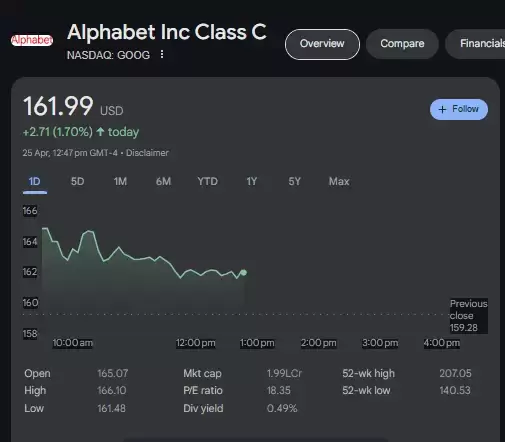 |
|
 |
|
 |
|
 |
|
 |
|
 |
|
 |
|
 |
|
 |
|
 |
|
 |
|
 |
|
 |
|
 |
|
 |
|
Cryptocurrency News Articles
When privacy becomes a luxury, users start paying the price in more ways than one.
Apr 26, 2025 at 01:56 am
Mantra's sudden crash and Hyperliquid's rapid climb may seem unrelated, yet both spotlight a deeper issue: exposure.

In a week marked by a surprising token crash and the rapid momentum of a decentralized exchange, a deeper theme emerged: exposure matters. From centralized exchange risks to analytics-heavy interfaces, today’s crypto tools often sacrifice discretion for convenience. But in a domain where traders seek an edge and institutions operate in a spotlight, that trade-off is increasingly risky.
As Mantra (OM) faced fallout and Hyperliquid’s (HYPE) recent rally stalled, another project stepped in with a fundamentally different blueprint — one built for those who prioritize privacy without giving up usability. Backed by zero-knowledge infrastructure and a tracker-free design, Cold Wallet is being viewed by analysts and early users as the best crypto for higher returns with security at its core.
Mantra (OM) faced a dramatic 90% price drop on April 13, with its value plummeting from $6.30 to below $0.50. According to co-founder John Mullin, this sharp decline was due to forced liquidations by a centralized exchange, executed without prior notice during low-liquidity hours.
"A large exchange decided to liquidate a portion of their Mantra tokens due to low price swings. Unfortunately, they chose to do so during low-liquidity hours and without notifying the community. This action ultimately led to cascading liquidations that cascaded throughout the ecosystem, ultimately pushing the token price down to $0.48," Mullin explained in a statement.
However, Mullin clarified that the team had no outstanding loans and all tokens remain locked according to the published vesting schedule. He also plans to host a community session on X to provide further insights into the incident.
"We want to be completely transparent with our community about what happened with the Mantra token price today. There has been a lot of speculation and misinformation circulating online, and we want to set the record straight," Mullin added.
This event has significantly impacted investor confidence and highlights the vulnerabilities associated with centralized exchange operations.
On the other hand, Hyperliquid’s recent 38% weekly surge and a nearly complete recovery from a March bear market trough have propelled the platform’s Total Value Locked (TVL) to $536 million. This marks a remarkable ascent from near-zero levels just six months prior.
In turn, this surges highlights a shift in user preference, favoring Hyperliquid’s rapid EVM expansion and user-centric interface. As a result, the platform’s market share in the perpetuals sector has now reached 3.8%, positioning it alongside established centralized exchanges.
Crucially, the foundation of this surge lies in a committed community of roughly 100,000 holders, whose loyalty and minimal token dilution have fostered organic growth. By contrast, this differs from the often transient spikes observed in other decentralized exchanges.
Yet, the question remains: can this momentum be sustained? While the current trajectory is promising, the true test will be Hyperliquid’s ability to maintain user engagement and navigate the challenges of a competitive market.
While mainstream wallets like MetaMask, Trust Wallet, and Rabby have prioritized accessibility and multichain compatibility, Cold Wallet is taking a fundamentally different route — one that prioritizes user privacy at the architectural level.
In comparison, most popular wallets still rely on third-party RPCs, include behavioral trackers, and leave digital traces that can be used to identify users and cluster their on-chain activity. But Cold Wallet removes these risks by default.
At its core, the wallet’s value proposition centers on a zero-knowledge (ZK) framework that enables balance verification and private transactions without exposing sensitive wallet data. Unlike competitors, Cold Wallet doesn’t rely on analytics scripts or metadata-heavy APIs. Instead, every connection is stripped of identifiable information, ensuring true network-level anonymity. No address-linking, no embedded trackers, no behavioral profiling.
This architecture appeals directly to users who see privacy not as a luxury, but as a requirement — traders protecting strategy, institutions shielding operations, or individuals avoiding surveillance. Functionally, Cold Wallet’s model acts as a secure vault with real-time usability, delivering the psychological and technical assurances of cold storage in a hot wallet interface.
Currently, with its $CWT token in presale stage 1 at just $0.007, the upside potential is striking. Upon launch, $CWT is expected to list around $0.3571 — presenting an opportunity for an over 5,000% projected return from the ground floor.
For this reason, investors seeking the best crypto for higher returns while aligning with Web3’s original values of self-sovereignty and discretion are finding Cold Wallet increasingly difficult to ignore.
Disclaimer:info@kdj.com
The information provided is not trading advice. kdj.com does not assume any responsibility for any investments made based on the information provided in this article. Cryptocurrencies are highly volatile and it is highly recommended that you invest with caution after thorough research!
If you believe that the content used on this website infringes your copyright, please contact us immediately (info@kdj.com) and we will delete it promptly.




























































